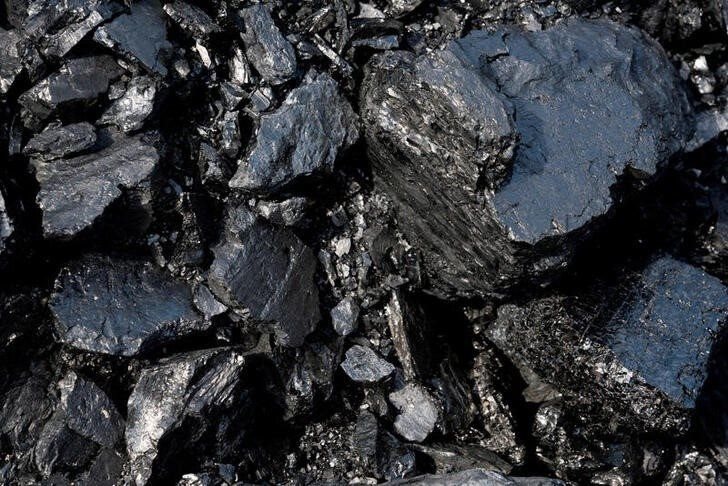Namibia's state-owned railway company TransNamib plans to shift coal exports from Botswana off the road and onto rail by early next year, potentially doubling exports via Walvis Bay port, its CEO said.

Anthracite coal at a strip mine in New Castle, Pennsylvania, U.S., July 13, 2020. REUTERS/Dane Rhys/File Photo
Land-locked Botswana has sought alternative routes to export its coal as disruption to South Africa's railway lines impact the commodity's route to Richards Bay port, the largest coal terminal in Africa.
Demand for coal from Botswana, South Africa, and elsewhere has surged since the European Union placed sanctions on Russian coal. But those seeking to profit in the region face big logistical challenges, with many currently trucking the fossil fuel hundreds of kilometres to ports, a costly and inefficient exercise.
"As the railways, we are looking at a short-to-medium-term solution to move coal in Namibia by rail," said Johny Smith, CEO of TransNamib. Shifting to rail would cut transportation costs and enable miners to export more.
TransNamib plans to move around 50,000 tonnes of coal a month off trucks and onto trains at Gobabis, a town in eastern Namibia 110 km from the Botswana border and about 600 kms from Walvis Bay.
Trucks would still have to carry coal from mines in Botswana to Gobabis, though.
"We see first shipments from Gobabis to Walvis Bay via rail by February or March of next year," Smith said. "We see it increasing to maybe 100,000 tonnes or more, it's just [about] putting the capacity there from a rail perspective."
TransNamib is getting a 2 billion rand ($117m) loan from the Development Bank of Southern Africa (DBSA) and the Namibian Development Bank, Smith said, to buy around 20 new locomotives and 300 wagons, some of which would be used on the Gobabis rail line.
A spokesperson for the DBSA said the loan would be finalised by the end of March 2023.
The Southern African Railway Association said it was in discussions with the EU and others about regional railway investments, including a planned "EU-Africa Global Gateway Investment Package".
The EU did not immediately respond to a request for further information.















































